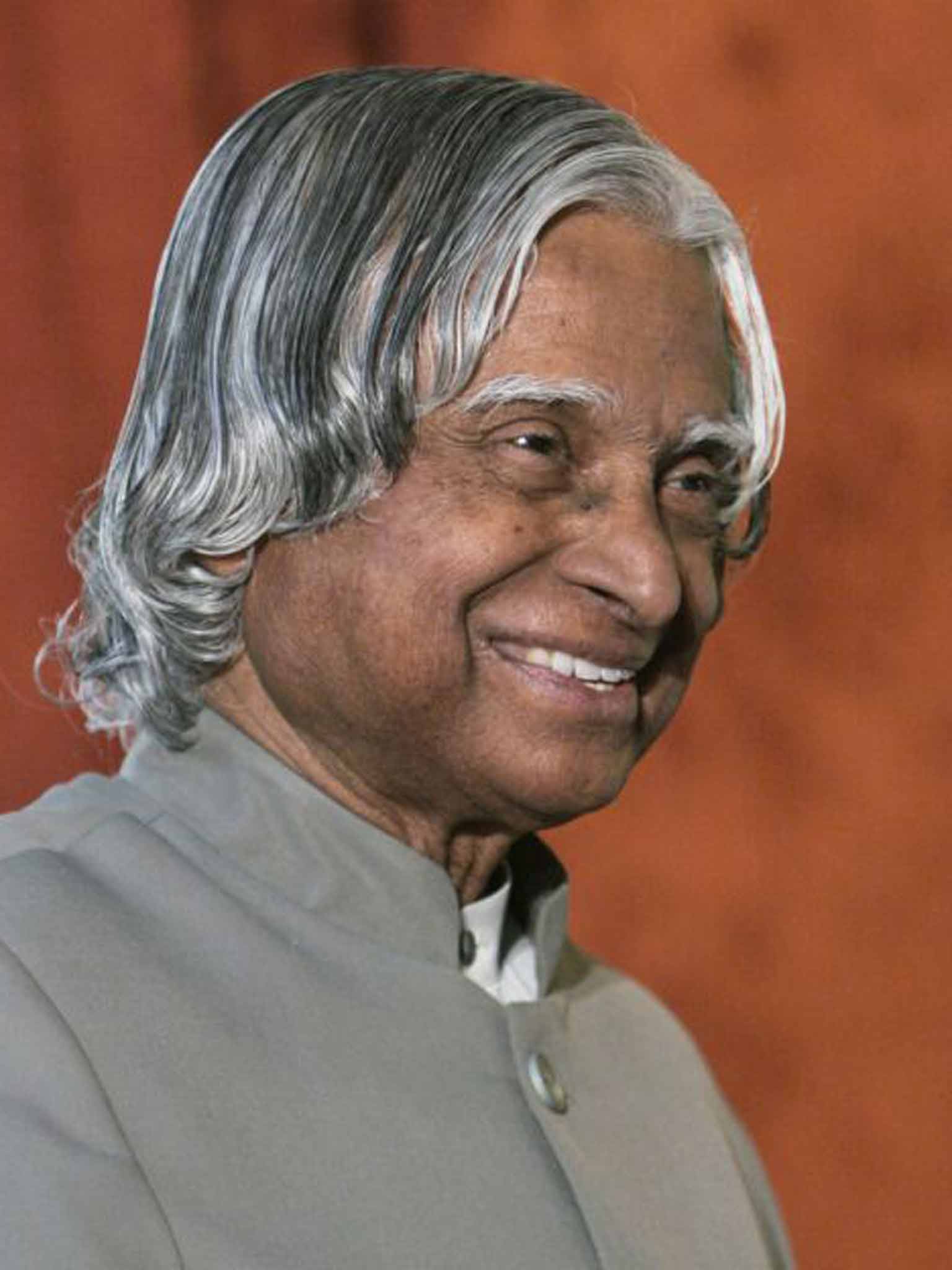APJ Abdul Kalam: Physicist known as the father of India's missile programme who also served as the country's President
Known as the "People's President", he also co-designed a rugged tablet computer for health care in rural areas

APJ Kalam was a former president of India who was known as the father of the country's military missile programme. President from 2002 until 2007, he was a scientist and science administrator for four decades before that, mainly at the state-run Defence Research and Development Organisation and the Indian Space Research Organisation (IRSO). He played a key role in India's nuclear programme.
He was born into a Muslim family in what is now Tamil Nadu, and graduated in physics from a college attached to the University of Madras. He went on to study aerospace engineering, and narrowly failed to achieve his ambition of becoming a fighter pilot.
He joined India's Aeronautical Development Establishment, beginning his career by designing a helicopter for the Indian army. In 1969 he moved to the IRSO as project director of the country's Satellite Launch Vehicle, and in the 1970s directed two projects, Project Devil and Project Valiant, aimed at developing ballistic missiles using the technology acquired in the SLV programme. He also helped develop a low-cost coronary stent and co-designed a rugged tablet computer for health care in rural areas.
As India's President he was affectionately known as the "People's President", and after his term ended he travelled to remote schools and colleges, speaking to students and inspiring them to follow their dreams. Even after he left office he received hundreds of emails a day from young people seeking his advice and would reply to nearly all of them. He died after collapsing while delivering a lecture.
Avul Pakir Jainulabdeen Abdul Kalam, politician and scientist: born Rameswaram, Madras Presidency, India 15 October 1931; died Shillong, Meghalaya, India 27 July 2015.
Join our commenting forum
Join thought-provoking conversations, follow other Independent readers and see their replies
0Comments